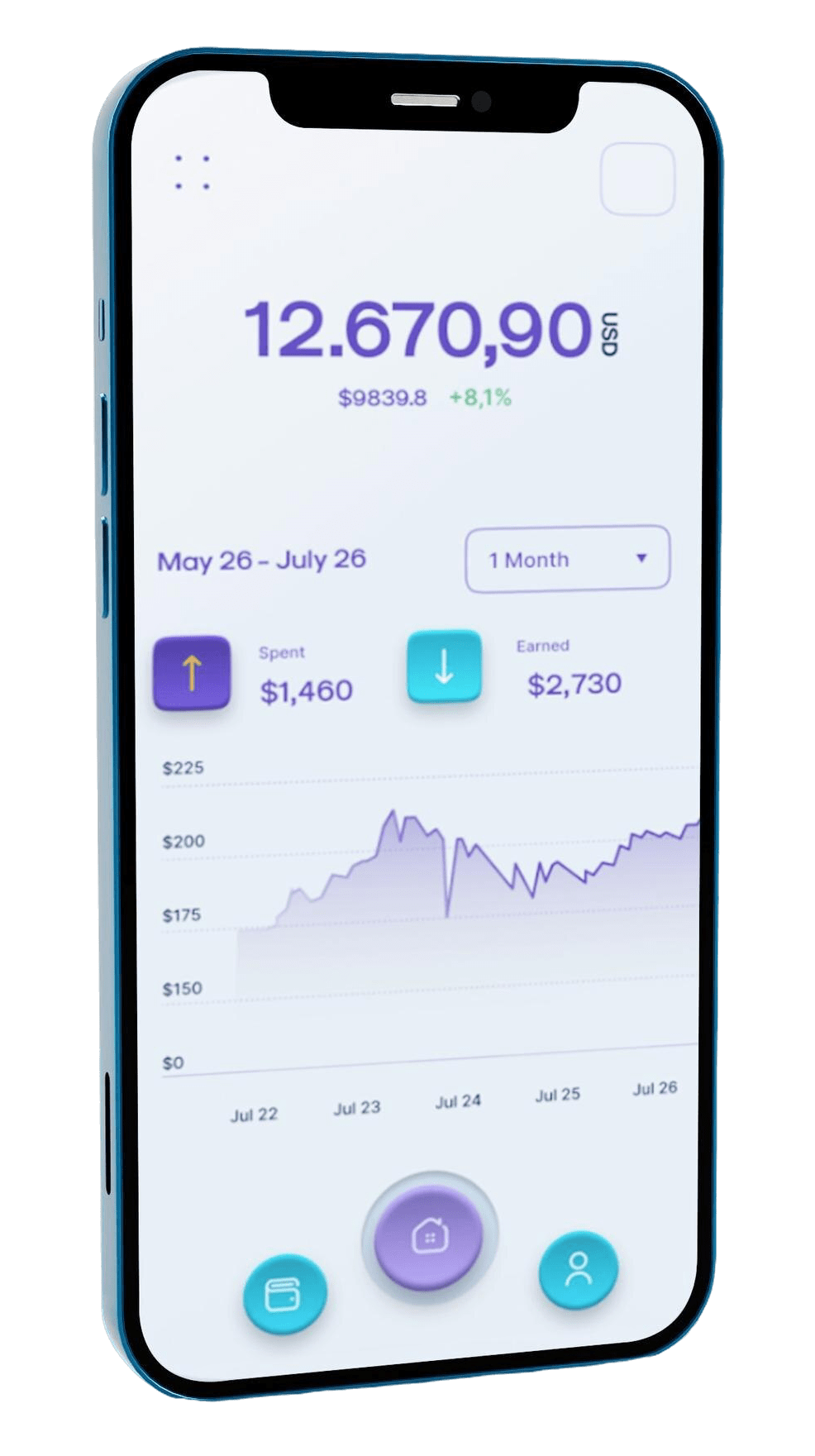The most important thing in brief
-
Definition: There is currently no
uniform definition of what sustainability means in
investing. However, factors like ESG or SRI criteria and
the EU taxonomy can help identify and classify
sustainable investment opportunities.
-
Options: There are various ways to save
or invest money sustainably. Examples include investing
in sustainable ETFs as well as sustainable savings and
fixed-term deposit accounts.
-
Criteria: Sustainable investments may
consider ESG (Environmental, Social, Governance) or SRI
(Socially Responsible Investment) criteria to ensure
that investments are made responsibly and ethically.
What Are Sustainable Investments?
Sustainable investments are financial assets that aim for
attractive returns while also considering environmental and
social criteria. They expand on traditional investment factors
such as security, profitability, and liquidity. Investors
seeking to invest sustainably can choose products that support
climate-friendly technologies or address social sectors like
education and healthcare. Another common approach is to
intentionally exclude certain industries, such as nuclear energy
and weapons, from investment portfolios.
What Sustainable Investment Options Are Available?
More and more banks and financial providers now offer options
for saving or investing sustainably. These include sustainable
savings or fixed-term deposit accounts, as well as green funds
or ETFs. Investors committed to sustainable strategies may also
consider direct investments in solar energy, wind farms, or
environmentally responsible startups—though these options often
involve higher risk.
Sustainable Savings Accounts
A savings account is a low-risk way to invest money flexibly at
a variable interest rate. With sustainable savings accounts,
banks use deposits exclusively for ecological or socially
responsible purposes.
With Allianz's sustainable savings account, savers benefit from
flexible access to their money while supporting environmental
and socially responsible causes. At the same time, deposits are
protected by the EU-wide deposit guarantee of up to €100,000 per
person and bank.
Sustainable Fixed-Term Deposits
Fixed-term deposits allow you to invest money for a set period
at a fixed interest rate. In the case of sustainable fixed-term
deposits, banks invest funds solely in responsible projects that
positively impact the environment or society—such as renewable
energy, social housing, or fair trade initiatives.
With Allianz's sustainable fixed-term deposit, savers receive
predictable interest while supporting ecological and social
initiatives. Like savings accounts, these deposits are also
protected by the EU-wide deposit guarantee.
Invest fixed-term deposits sustainably
Sustainable Funds and ETFs
ETFs (Exchange Traded Funds) are index funds traded on the stock
exchange. They replicate the performance of an index, such as
the German DAX. These indices typically include large companies
whose price movements are mirrored by conventional ETFs. Unlike
ETFs, mutual funds are actively managed by a fund manager who
aims to outperform the benchmark index. The same principle
applies to sustainability funds, with the key difference being
that the included companies operate in a sustainable and
forward-looking manner. The risk in funds is typically more
spread out due to diversification compared to individual
sustainable stocks. However, active management of sustainability
funds usually comes with higher fees than passively managed
sustainable ETFs.
Sustainable ETFs replicate indices that have been preselected
based on ethical criteria. These indices include companies and
industries committed to a greener future and aligned with ESG
standards. Like conventional ETFs, most sustainable ETFs are
diversified, meaning the risk is distributed across multiple
companies and sectors. Common sustainable indices include:
Global and Diversified Portfolios
The portfolios in our digital wealth management platform
invest your capital in a broadly diversified way. This means
you benefit from global equity and bond markets through a
single portfolio.
Our investment team follows a strategy based on insights
from 50 years of leading financial research.
Learn more about the investment strategy >
Sustainable Stocks
Investors can buy shares in companies that operate in an
environmentally and socially responsible manner. By purchasing
individual stocks, investors can directly support companies that
align best with their personal values of sustainability.
However, this form of investment is generally less diversified
than options like ETFs, which can result in higher risk.
Criteria for Sustainable Saving and Investing
There is no universal definition for sustainability in
investing. However, several criteria can be used to identify and
classify sustainable savings and investment options. These
standards aim to improve transparency around what qualifies as a
sustainable investment.
The most important criteria include environmental impact, social
responsibility, and corporate governance—summarized under the
term ESG (Environmental, Social, Governance). ESG investments
typically involve products that support environmental and social
causes and ideally invest in future-oriented companies that
treat their employees fairly. Additionally, the EU taxonomy
defines which environmental activities should be considered
sustainable, helping to increase transparency and comparability
of sustainable investments. Other key methods and criteria also
support sustainable investing.
Individuals who want to save or invest sustainably can also
consider whether the investment product avoids greenwashing—that
is, the practice of portraying products or companies as more
sustainable than they truly are.
Basics of Sustainable Investing
The field of sustainable investing is diverse and complex, and
can be challenging due to the lack of a single definition for
sustainability. A checklist can help guide investors in
identifying sustainable products more easily:
-
Review Sustainability Reports: Many
companies publish CSR (Corporate Social Responsibility) or
sustainability reports to document their sustainability
practices. These reports often follow recognized standards
such as:
-
Global Reporting Initiative (GRI): A
comprehensive framework for reporting on economic,
environmental, and social sustainability.
-
Sustainability Accounting Standards Board
(SASB):
Offers industry-specific standards for disclosing key
ESG topics.
-
Integrated Reporting (IR): Combines
financial and non-financial information to provide a
holistic view of company performance.
-
Consider the Sustainable Development Goals
(SDGs):
Set in 2016, these 17 UN goals aim for ecological, social,
and economic development by 2030—such as ending poverty,
hunger, and promoting health and well-being. Sustainable
investments can help support these targets.
-
Ensure Compliance with the EU Disclosure
Regulation:
In effect since early 2021, this regulation improves
comparability of sustainable products and directs financial
flows into sustainable companies. It requires providers to
disclose more information, enhancing market transparency.
-
Use the EU Taxonomy as a Benchmark: Closely
tied to the Disclosure Regulation, the EU Taxonomy defines
specific environmental goals that investments must meet to
be classified as sustainable. It helps evaluate green
financial products with greater consistency.
-
Objectives of the EU Taxonomy: The taxonomy
aims to support investments contributing to six defined
environmental goals, each with scientific criteria:
- Climate change mitigation
- Adaptation to climate change
-
Sustainable use and protection of water and marine
resources
- Transition to a circular economy
- Pollution prevention and reduction
-
Protection and restoration of biodiversity and
ecosystems
Which Companies Are Excluded from Sustainable Investments?
Sustainable investing may involve the explicit exclusion of
certain companies or industries. These typically include
businesses involved in the following areas:
- Nuclear energy or fossil fuels
- Weapons manufacturing
- Tobacco or alcohol production
- Gambling
Opportunities and Risks of Sustainable Investments
Green investments can offer a variety of opportunities that
provide both financial and societal benefits. Investments in
sectors like renewable energy or sustainable technology have the
potential to generate attractive returns. Companies and projects
that demonstrate responsible resource use and ethical business
practices are often well-positioned to deliver stable,
future-proof earnings. Moreover, sustainable saving and
investing allows individuals to align their financial goals with
personal values, creating a positive societal impact. This
alignment can be a strong motivation for many investors, as
their capital contributes to addressing global challenges such
as climate change and social inequality.
Despite these opportunities, green investments are not without
risks. Like all capital market investments, green ETFs and other
sustainable financial products are subject to market volatility.
This risk can be particularly high in specialized and rapidly
growing sectors. Additionally, regulatory changes, technological
developments, and the evolving nature of young companies may
affect performance.
To mitigate the risks associated with sustainable investments,
broad portfolio diversification can be beneficial. One effective
strategy is to combine low-risk savings products—such as savings
and fixed-term accounts—with a sustainable investment portfolio.
This approach helps spread risk and increases the overall
portfolio’s stability.
Save and Invest Sustainably with Allianz
Allianz offers a wide range of options to save and invest your
money sustainably while earning attractive interest. With
products like sustainability-focused savings accounts,
fixed-term deposits, and ESG-compliant ETFs, you can diversify
your portfolio and invest your funds responsibly and ethically.
Save & invest money sustainably
Note:
Every investment in the capital market involves opportunities
and risks. The value of investments may rise or fall. In the
worst-case scenario, a total loss of the invested amount may
occur. You can find detailed information under Risk
Notices.



